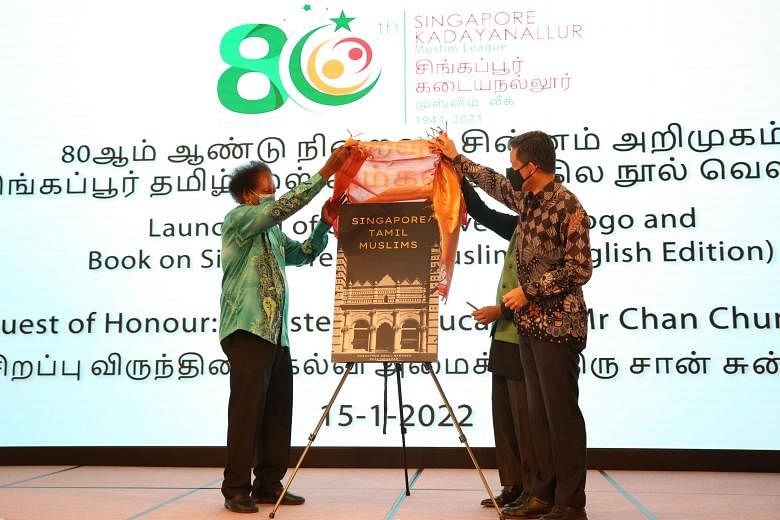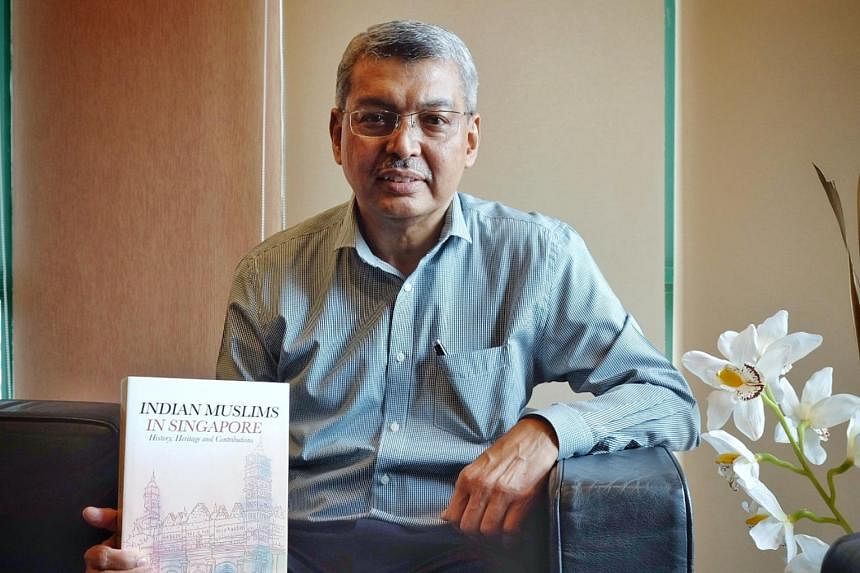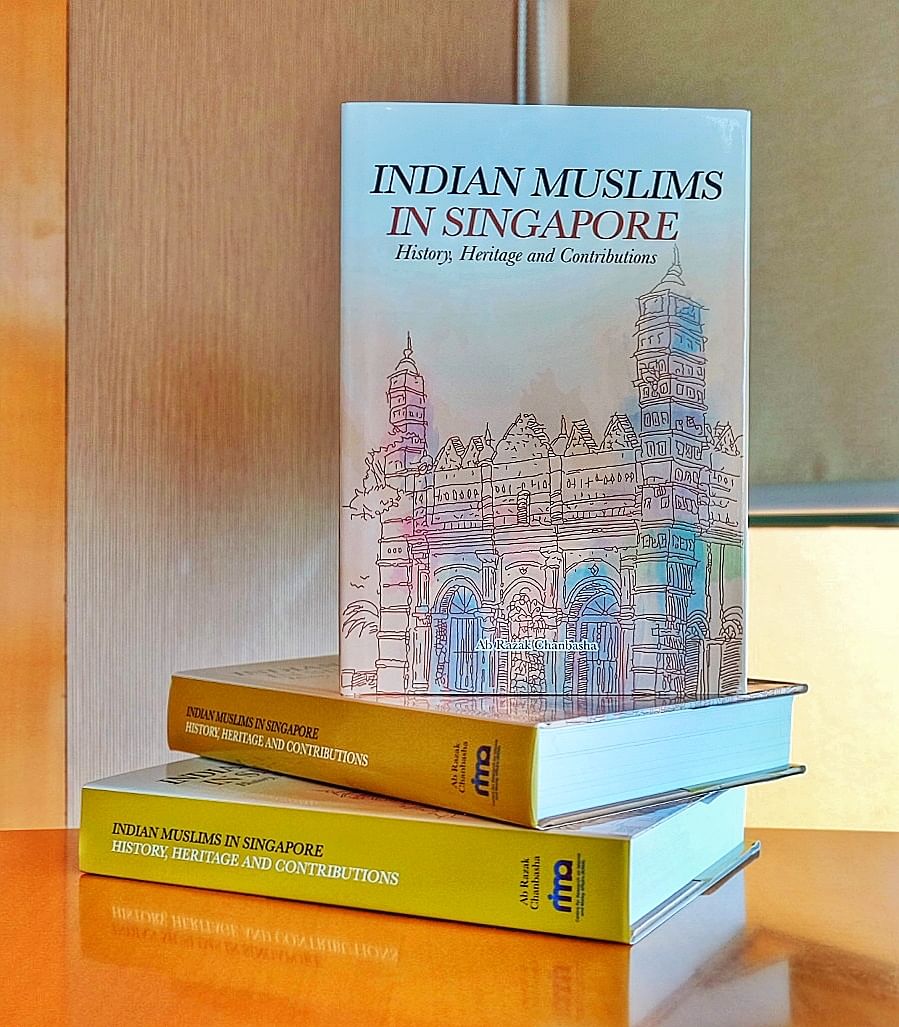INDIA / SINGAPORE:

IMPROF President Raja Mohamad (right) and the Chief Executive of Centre for Singapore Tamil Culture Arun Mahizhnan presenting Dr Maliki Osman a token of appreciation.Photo: IMPROF
A newly launched microsite aims to serve as a comprehensive repository of the Singapore Indian Muslim community’s rich history and contributions.
The digital platform, developed by IMPROF, a network of Indian Muslim professionals, in collaboration with the Centre for Singapore Tamil Culture (CSTC), centralises information on important individuals, organisations, institutions and publications in the Singapore Indian Muslim community.
Launched on July 28 at the National Library Building, the microsite serves as a gateway into the insights of the Singaporean Indian Muslim community, said Dr Maliki Osman, Second Minister for Education and Foreign Affairs, who was the guest of honour at the launch event.
“The story of Indian Muslims in Singapore is one of resilience, cultural preservation and contribution to our nation’s multicultural identity.
“I hope this microsite can serve as a reminder, not just for the Indian Muslim community, but also for the broader Singaporean audience on the importance of preserving and documenting our stories,” he said.
He also encouraged the younger generation to take up the mantle and uphold these traditions.
Mr Raja Mohamad, president of IMPROF, said that Indian Muslims are often misunderstood even in today’s society.
“This microsite aims to address misconceptions and promote accurate information about our community. It is not merely a directory but a well-organised collection of existing information that has been gathered from various sources across the internet,” Mr Raja said.
For example, one can find information about a teacher who is also a community leader, an author, and a sports enthusiast, all in one place, he said.
The microsite documents key developments and notable figures in the Singapore Indian Muslim community, including publications and resources by Indian Muslims as well as those written by others about Indian Muslims.
With 111 subjects, 58 personalities, 30 institutions and 705 links featured, Mr Raja said the site’s content is non-exhaustive and will be continually updated.
The criteria for selection include having an independent mention on authoritative third-party websites, such as government or official institutions, and being recognised through national awards or respected institutions. Additionally, individuals must have excelled in their professional fields or served the community in significant capacities within government or influential agencies.
Mr Raja said he hopes it will be a valuable resource for scholars, community leaders, students and anyone who wants to know more about their community.
The idea for the microsite was conceived four years ago when he gave Mr Raja a call on Hari Raya morning, said Mr Arun Mahizhnan, the chief executive of CSTC.
“The world of the Indian Muslims in Singapore is a continuation of what existed more than 2,000 years ago in this region. They are a small but significant community that helped build Singapore.
“CSTC believes social history is essential for a fuller understanding of our community life. We hope to act as a catalyst in several more of such initiatives,” he said.
Link to microsite: https://singapore-indian-muslims.glide.page
source: http://www.tamilmurasu.com.sg / TABLA / Home> Singapore / by Yogita Anbuchezhian / August 01st, 2024











